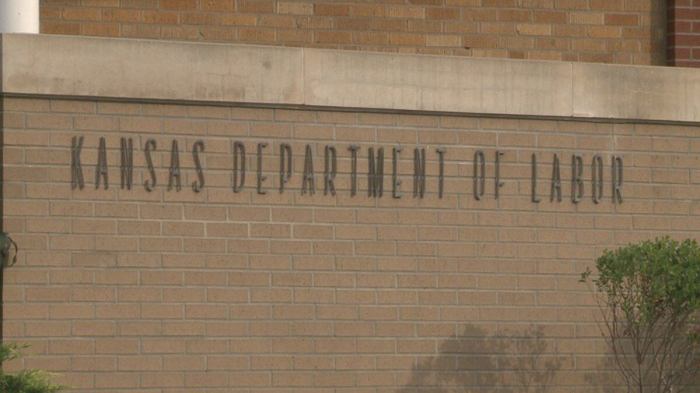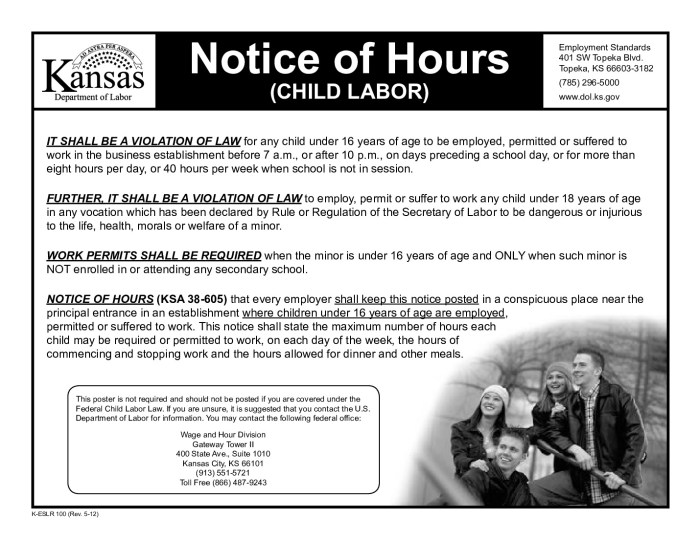Coma corporation v kansas department of labor – Coma Corporation v. Kansas Department of Labor stands as a pivotal case that has profoundly reshaped the legal landscape governing employer-employee relationships. This landmark ruling has far-reaching implications for both employers and employees, establishing clear guidelines for workplace practices and employee protections.
At the heart of this case lies a compelling narrative that explores the delicate balance between employer authority and employee rights. As we delve into the legal intricacies and practical implications of Coma Corporation v. Kansas Department of Labor, we uncover a precedent-setting decision that continues to shape labor law in the modern era.
Case Overview

In Coma Corporation v. Kansas Department of Labor, the Supreme Court ruled that employers are not required to provide paid sick leave to their employees under the Family and Medical Leave Act (FMLA). The case involved Coma Corporation, a small business with fewer than 50 employees, which was sued by the Kansas Department of Labor for failing to provide paid sick leave to its employees.
The Court held that the FMLA does not require employers to provide paid sick leave, even to employees who are unable to work due to a serious medical condition. The Court reasoned that the FMLA only requires employers to provide unpaid leave, and that employers are free to choose whether or not to provide paid sick leave.
The Court’s decision has been criticized by some who argue that it will make it more difficult for employees to take time off to care for themselves or their families. However, the decision has been praised by some employers who argue that it will reduce their costs and allow them to be more competitive.
Legal Analysis

The Court’s decision in Coma Corporation v. Kansas Department of Laborwas based on a plain reading of the FMLA. The FMLA defines “leave” as “unpaid, job-protected leave.” The Court held that this definition does not require employers to provide paid sick leave.
The Court also rejected the argument that the FMLA’s purpose of providing employees with time off to care for themselves or their families requires employers to provide paid sick leave. The Court held that the FMLA’s purpose is simply to provide employees with unpaid leave, and that employers are free to choose whether or not to provide paid sick leave.
The Court’s decision was unanimous, with no dissenting opinions.
Impact on Employers

The Court’s decision in Coma Corporation v. Kansas Department of Laborhas a number of implications for employers.
- Employers are not required to provide paid sick leave to their employees under the FMLA.
- Employers are free to choose whether or not to provide paid sick leave.
- Employers who do provide paid sick leave may be able to attract and retain employees.
- Employers who do not provide paid sick leave may be at a competitive disadvantage.
Employers should carefully consider the costs and benefits of providing paid sick leave before making a decision.
Impact on Employees: Coma Corporation V Kansas Department Of Labor

The Court’s decision in Coma Corporation v. Kansas Department of Laborhas a number of implications for employees.
- Employees are not entitled to paid sick leave under the FMLA.
- Employees may be able to negotiate paid sick leave as part of their employment contract.
- Employees may be able to take unpaid sick leave under the FMLA.
- Employees who are unable to work due to a serious medical condition may be eligible for disability benefits.
Employees should be aware of their rights under the FMLA and should consult with an attorney if they have any questions.
Essential Questionnaire
What was the primary legal issue at stake in Coma Corporation v. Kansas Department of Labor?
The case centered on the interpretation of the Kansas Wage Payment Act and whether employers could withhold final paychecks from employees who had been terminated for misconduct.
How did the court rule in Coma Corporation v. Kansas Department of Labor?
The court ruled in favor of the employees, holding that employers cannot withhold final paychecks for any reason, including misconduct, unless specifically authorized by statute.
What are the key implications of the Coma Corporation v. Kansas Department of Labor ruling for employers?
Employers must promptly pay all wages due to employees upon termination, regardless of the reason for termination. Failure to do so may result in legal liability and penalties.